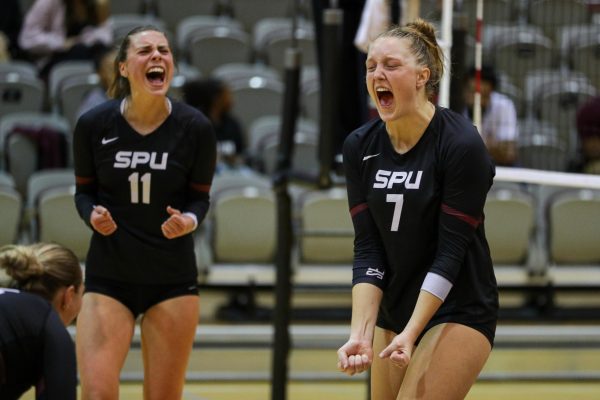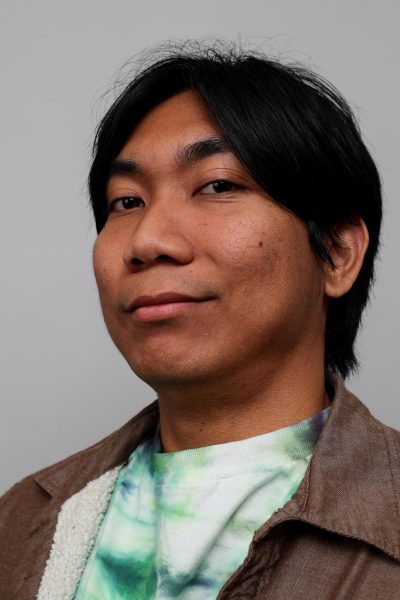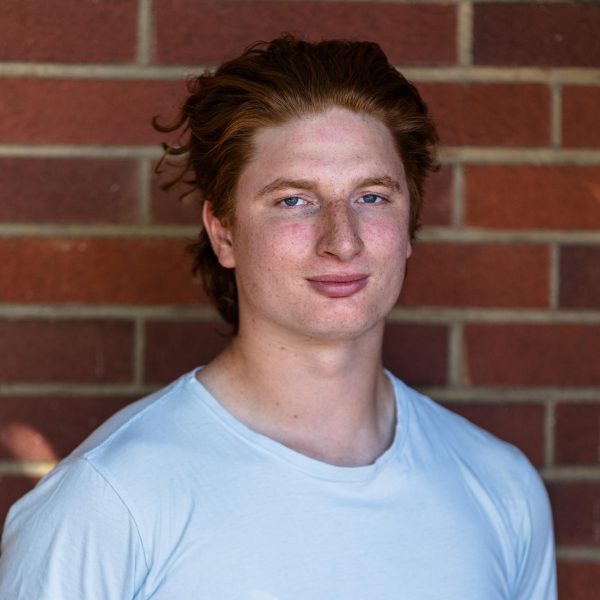
Seattle Pacific University returned to its pre-COVID class schedule for the 2024-2025 school year. With classes starting on Monday, Sept. 30, student athletes arrived two or more weeks before students, some having stayed on campus over the summer.
From 2021 to 2023, students and student athletes returned to campus concurrently when classes started in early September.
Having a head start was especially beneficial for fall quarter sports. During non-championship segments, when teams are not in season, the National Collegiate Athletic Association restricts coaches’ access to student athletes to not overwhelm them. Student athletes regularly have four-hour practice days in-season, but this is limited to eight hours total per week out of season.
This was the first time Jason Rhine, the head coach for women’s volleyball, had experienced the new schedule, having joined SPU only a year after the COVID-19 pandemic. Rhine said the greatest benefit of the new schedule was giving extra time for the team’s veterans and rookies to bond with each other.
“There are more hours in the day, so there’s time for them to go through our team culture, get to know one another [and] draw closer together as a team,” Rhine said. “It provided a really good foundation, especially since our team has a big dichotomy this year.”
Sophomore business management major Chase Nelson, a goalkeeper for men’s soccer, said the advanced weeks felt more important and helped solidify the team’s identity apart from on-the-field play.
“It helps because you’re bringing in transfers and freshmen who have never been around the program or the players,” Nelson said. “For the first couple weeks, you’re [all living together]. It’s a unique opportunity to bond with your teammates off the field. You’re going out there as a family, [so] you gotta be connected in more ways than just kicking a ball around.”
Another benefit was the advantage of more time than was provided by the old schedule when teams only had two or three weeks before school.
“We don’t have very many weeks to start playing games from when we get to start practice as a fall sport,” Rhine said. “It was nice to have a little bit of flexibility [instead of] trying to squeeze in two practices a day as many days in a row until school started.”
For later sports, such as basketball and track and field, a little more time makes a lot of difference. Keffrey Fazio, the head coach for the men’s basketball team, shared that teams were allowed more time to prepare for their seasons without worrying about classes.
“It transitions us into the start of the school year [and] sets our student athletes up to integrate into being a student athlete more seamlessly,” Fazio said. “They get a little bit of basketball, get familiar with campus and their team, and then they can blend that in versus [previously], it all started at once, and that can be overwhelming.”
Redshirt sophomore Alex Hristov, a striker for the men’s soccer team and business administration major, confirmed the transition into school was easier than in previous years, especially with some athletes’ additional commitments.
“Having the first six weeks to [be] solely an athlete was great. A lot of [us] had outside jobs and stuff like that, so transition into school was smoother [than] the previous years that I’ve been here,” Hristov said.
Rhine also shared some challenges the coaches had to manage due to the new schedule.
“It was definitely a different challenge to have even more weeks of planning practices, having things for the team to do together off the court. It’s a lot of time for us to be responsible for the dorms,” Rhine said. “Financially, there was a big jump up in having to pay for housing and food for all the athletes without necessarily that getting adjusted into our budget.”
Regardless of schedule, the athletic department’s goal is always to serve the needs of student athletes on and off the court.
“Our job is to serve the student athletes in the best way we can,” Fazio said. “We have rules in place from the NCAA [and] from our university, and as coaches, it’s our job to make the best of each situation. We want to provide a positive experience holistically for them. I know our coaches, that’s their number one goal.”
















































































